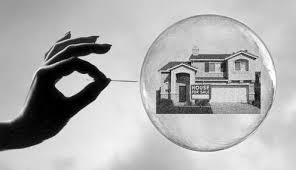Canada’s Housing Market Instability: 5 Pointers To Look At
You’re probably going to want to ask for a break already, especially if this article gets to reiterate the opinion that Canada’s housing market is a ticking time bomb, waiting to explode. It’s also probably something that you would feel like ignoring since it has been repeated for the past six years… But who knows?
However, to try and explain the happenings in the Canadian housing market will be quite difficult and confusing. Funnily, although with a recession in the first half of last year, discouraging growth and an increase in household debts, Toronto and Vancouver have witnessed a bust in house price, with it hitting double-digits over the previous years.
Take for example the profits you would be making as a house owner. If you owned a house, especially in Toronto, your house will probably be soaring by $8,500 a month. You just might make money by flipping houses which is a common thing these days.
Blame could go to the Bank of Canada interest rate cuts which have affected pricing and have also got some experts on their toes. Some believe that Canada is at the end of its house price rope especially with the flop in interest rates.
Take a look at the five recent signs that Canada’s housing market is witnessing instability and will be in need of one change or the other.
#1. Canada at the top of the world’s housing bubble rankings
Canada was listed by The Economist as having one of the most ‘overvalued housing market among three dozen advanced economies’.
The magazine added Australia on the list and described them as the places where “prices seem most out of kilter”. It identified one of the reasons for an up in prices as “the cheapness of borrowing”.
The Deutsche Bank were also of the same view and declared Canada as one of the countries with the most overvalued housing market, evincing the 60-percent overvalue in housing in 2013.
Having an overvalued housing market is not the only basis for change. However, it increases the likelihood.
#2. Canadian housing facing opposition by numerous global investors
Canada’s housing numbers are taking a hit from the global community as more and more are refusing to buy Canada’s houses.
Research done by Markit, a research firm, shows the increase in the investors taking “short” positions on Canadian companies, especially though in the business of mortgage lending such as banks. It’s no surprise what these investors are expecting- a fall in investor stock prices.
One of Canada’s largest mortgage lenders, Home Capital Group is one of the most-shorted stocks in Canada according to CNBC. It is also three of the 10 most-shorted stocks in financial institutions.
#3. Growth in mortgage fraud
Following the dissociation of Home Capital with 45 mortgage brokers earlier last year because of accusations of falsified borrowers’ incomes, it is of no surprise that short sellers have targeted the Group.
It has raised the limelight on mortgage fraud, which was one of the reasons for the US housing bubble bust over the past few years. It has not encountered the lending frenzy that is taking place south of its border.
Consequently, an investigation by the Globe and Mail affirmed the view that mortgage fraud is becoming an increasing popularity in the real estate community.
Canada Guaranty, one of the country’s mortgage insurers, in a 2012 online presentation on fraud and identity theft stated that “one in 10 mortgage applications will have some element of fraud.”
Since 2013, $1 billion worth of attempted fraud was found among Credit bureau Equifax lender clients.
In a few cases, borrowers are trying to break their banks by buying homes that are just out of their reach. In other cases, borrowers use other means to acquire houses like changing their pay stubs and bank statements so as to get the most affordable mortgage instead of placing a higher down payment.
#4. Foreign investors clearing personal spaces… Probably another sign of racism…
The University of Columbia may have most likely highlighted some fears about foreign investors and their effect on house prices, in a research carried out.
The study discovered that “Mainland Chinese” nationals had acquired 70 percent of homes within six months in the west side of Vancouver.
However, the study was accused of racism as it lacked data and tried to base nationality on the names of homeowners.
“I’m very concerned with the racist tones that are implied here, and we have to get away from that. We have to deal with this as a housing challenge we have,” Vancouver Mayor Gregor Robertson said.
Point Grey, Vancouver resident Clare Cullen also told the Globe and Mail- “I see a house sold now – and you just know it’s going to get demolished… The houses they build are empty – or people are only here for a month.”
The situation of empty neighborhoods is realer than ever. She suggested that empty neighborhoods pose more danger than those fully occupied.
The banks could not be happier about the trend. RBC had announced that its putting limits on new mortgages in order to keep up with the foreign nationals.
#5. CMHC are of the opinion that…
Overvaluation is a cause for concern in Canada. This government-run mortgage insurer whose job it is to keep housing and homeowners in line has grown worried about the present situation with overvaluation.
Overvaluation was found in 11 out of 15 markets in Canada especially with regards to condo overbuilding in Ottawa, Toronto and Montreal.
“The evidence of overvaluation has increased since the previous assessment in Toronto, Vancouver, Montreal, Edmonton, and Saskatoon as price levels are not fully supported by economic and demographic factors,” CMHC economist Bob Dugan said in a statement.
He suggested a simple situation that will prevent a housing bust.
“Problematic overvaluation conditions in local housing markets could be resolved by moderation in house prices and/or improving economic conditions,” he said.





